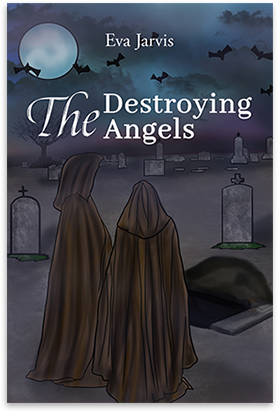
SLAIN HEROES
They called my town beautiful but deadly, due to so many
unexploded bombs left from the German occupancy of my country. These
destructive explosives kept popping up in the least expected places, buried
deep in the ground, sensitive to the earth shifting, threatening to explode
with the slightest ground turbulence. Some bombs were designed purposefully
with delayed fuses, set to explode years later, still deadly if triggered by
pressure points, such as a car driving over the surface or a tractor ploughing
the field.
I was perhaps thirteen, when the alarm wailed calling for children to
immediately evacuate the building. Our school gardener, digging the soil to see
if he could expand the school garden, stopped in his tracks when his spade
struck something solid. After a frantic digging to unearth the buried treasure,
he recoiled, running inside the building to inform the school principal what he
had found. As soon as it dawned on the school director what the gardener was
trying to say, chaos unfolded as teachers rushed pupils out of the school with
the siren sounding the alarm to evacuate the building immediately.
As my primary school featured high windows and tall roofs, a swift decision was
made to evacuate everyone on the first-floor landing through the stairs but
those on the top floor had to use the slides. To small children, the
"slides" looked really frightening, used sometimes as drills in false
fire alarms. But that day, it was no game playing, and the children had to
slide down from the windows on those specially designed rapid evacuation
tunnels. The controlled descent looked somehow different from the drills issued
during false alarms. The children screamed in fright; from the top floor, the
ground seemed impossibly far away — a long slide to the safety of the earth.
I was with those on the ground level, quickly removed from the school premises
and sent home with my house key dangling from a chain round my neck. The sound
of the fire brigade sirens echoed up and down the street, prepared for smoke
and fire in case the bomb exploded, igniting flammable materials. The official
news said that a special military unit equipped to deal with unexploded bombs
had been called in, keeping the bomb under control. The government department
in charge issued a statement that the bomb would be safely kept from destroying
other buildings and that it was an old piece of junk unable to cause wreckage
if it went off. A police cordon was put in place, sealing off the school from
the onlookers eager to find out whether a controlled explosion would happen.
The uncovering of the German bomb had reawakened public fears about how many
more were concealed underground in the most unexpected places. They could rest
in the ground with a delayed fuse under communal buildings, like schools,
hospitals, or the railways. There were a few massive evacuations of the entire
villages and small parts of town where 550- pound aerial bombs were found. They
posed a real danger as a result of earthworks and construction.
The removal of the bomb in the schoolyard might have been another successful
story had it not been for the rumours that reached a public unwilling to forget
the truth. Not even propaganda outlets could bury the news that the bomb did
explode killing the two “specialists” in charge of dismantling it. In truth
those two men were no more equipped to handle a bomb than children playing with
matchsticks. The authorities had no one on call that day — no military
engineers or police bomb squads who could use their expertise, only two factory
workers used to handling industrial equipment rather than explosives.
Assuming it was a rusting shell, they shifted the bomb, loading it onto the
digging fork vehicle, taking it to metal scrap where they would leave it until
the authorities produced a plan. The two technicians played their role well,
pretending to understand how to defuse bombs and how to transport the dangerous
material. They only managed to drive through a local field when the bomb
detonated, killing both men in an instant.
The authorities responsible for their mistake kept silent, unmoved by the
shockwave of fire and screams. The unnatural stillness lingered for years until
with the changing of governments, long buried truths emerged, igniting public
outrage.
The slain heroes who died when the bomb went off did not vanish into the chaos
of time. Townspeople demanded to uncover the past, to find those responsible.
Though their blood had long dried on the ground where they perished, the charge
of negligence persisted. The soil still carries the tremor of the German bomb,
reverberating through time.
For years after the war, the unexploded German bombs remained hidden in forests
and pastures, posing grave danger to civilians. Farmers ploughing their fields
sometimes accidentally struck their rakes against buried explosives, while
children playing in the woods unknowingly stumbled upon forgotten bombs,
leading to tragic accidents. Military disposal units were not always available
on call, the resources were limited, and responses often varied, hindered by
neglect or delays.
Decades may have passed, yet the echo of history still rings loudly. Though the
uncovering of bombs in the town of my birth is no longer happening, I was told
that there are still German bunkers left — hunting places for ghosts of
unburied corpses.
Post Views : 417